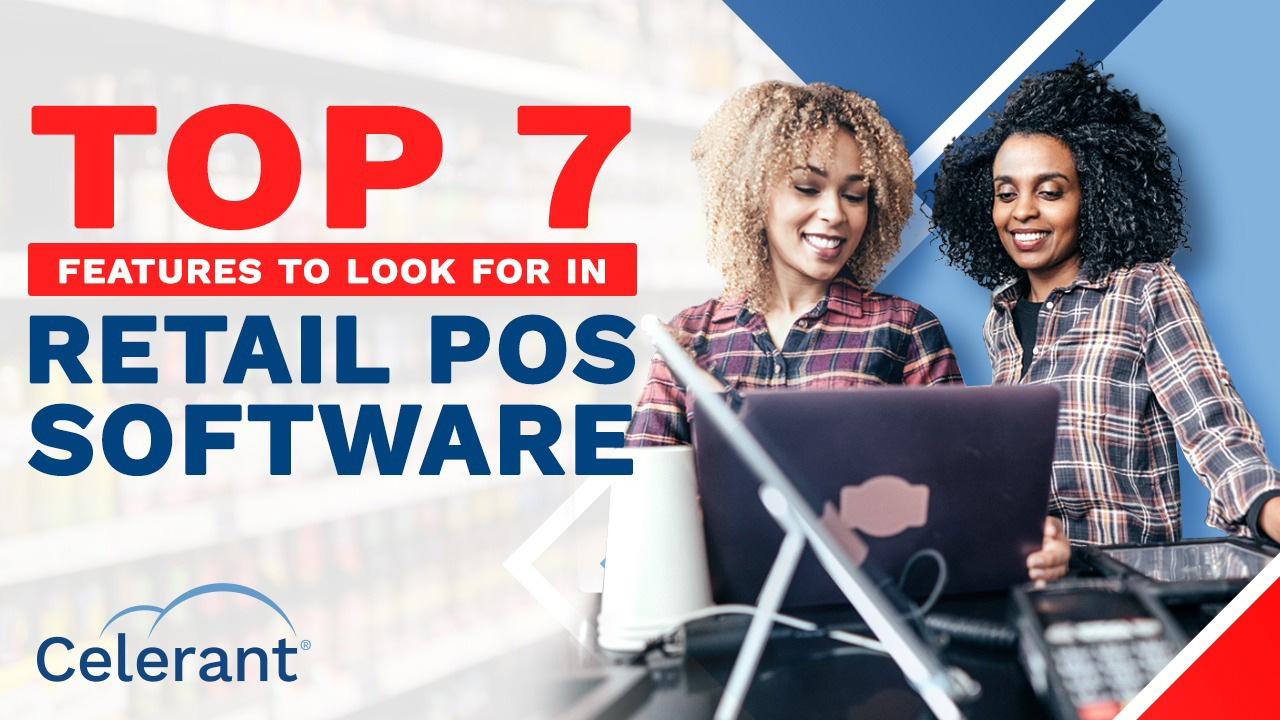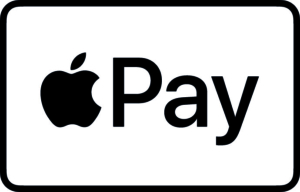Blog
Top 7 Features to Look for in Retail POS Software
April 4, 2023 / 8 minute read / By Zoya Naeem

Blog

If you’re running a retail business, you know how valuable a feature-rich point of sale system can be.
From tracking your inventory to processing credit card payments and providing nifty insights into how your business operates- a cloud-based POS retail software can revolutionize the way your business operates, helping you save money, while also helping you increase your sales.
With so many options on the market, choosing the right retail POS can be challenging, so it’s essential to understand your business needs and the main features you require before making your choice.
In this blog, we discuss all the important factors you should consider when looking for a point of sale system.
One of the primary functions of a retail POS system is to record transactions that your store made. Recording sales quickly in your system is important, especially during peak hours and/or holidays when waiting lines are growing.
This makes it essential to have a retail software that allows for the efficient scanning and selling of products. Some point of sale software systems are capable of recording a range of transactions, including sales, special orders, repairs, vendor payments, buy-trade, and inventory transfers.
Here’s a quick summary of what these different transaction types mean:
| Types of Transaction | |
|---|---|
| Sales | With a POS system, recording a sale is a breeze. It automatically updates your inventory by deducting the quantity sold, and you can easily print or email receipts and/or invoices to your customers. |
| Special Orders | Certain POS systems allow you to even record orders for products that are not currently in stock. This means you can keep track of customer requests and quickly let them know when the product is available. |
| Repairs | Certain POS Software like Cumulus Retail and Stratus Enterprise allows you to closely monitor the status of items customers bring to your store for repair. No matter what products you sell, be it RC items, bikes, or jewelry, you can monitor and manage every repair status with ease. This feature not only helps improve your repair services but also increases your revenue potential. Even if you don't currently offer repairs, this feature can be a powerful addition to your business. |
| Vendor purchases | Some POS systems allow you to manage vendor purchases. This allows you to have control over purchases and make sure you have the items ordered from your preferred vendors right when you want. |
| Inventory transfers | Some POS retail software allows you to transfer inventory between stores. This makes it super easy to view the products that have been transferred, the description, and the reason why they were moved. This feature allows you to efficiently manage customer service and avoid missing sales due to lack of inventory. |
In order to speed up checkout lines, a good retail POS system should have the ability to display buttons for frequently purchased items or categories. This way, cashiers can quickly ring up those items with just one touch of a button. The menu navigation within the point of sale screen can be customizable so that you can move and rearrange buttons based popular areas of the POS for your cashiers, which can vary by store location as well. If a customer wants to buy other items, the system should have an intuitive way to look them up, making it fast and easy for your store staff.
We all know that the easier it is for customers to pay, the more likely they are to buy from you and keep coming back. So, when selecting a retail POS system, it’s important to choose one that allows you to accept a wide range of payment methods. Of course, you’ll want to be able to accept all major credit and debit cards, as well as popular digital wallets like Apple Pay, Google Pay, and Samsung Pay. But why stop there? If your customer base includes lots of young people, it might be worth considering accepting PayPal and Venmo too.




That’s where your POS system comes in. A great retail POS system should offer omnichannel integration and online sales management to help you increase your online presence and grow your business. By combining these two features, you’ll be able to effectively regulate your e-commerce and support sales across all channels – in-store, off-site, on desktop and mobile devices, and even on social media. By offering a seamless shopping experience across all platforms, you’ll be able to keep your customers engaged and coming back for more.
Nowadays, customers have come to expect the convenience of mobile POS systems, and it’s become a must-have for many retail businesses. Nobody likes waiting in long lines, and a mobile POS can help reduce this issue. For instance, sales associates at the Apple Store use mobile POS systems to check out customers on the sales floor, providing them with a more personalized experience and allowing them to skip the queue.
One way to add mobility to a traditional countertop checkout station is by incorporating a mobile tablet to use when the line gets too long. In some cases, businesses can even set up self-service checkouts using mobile POS systems. This technology is especially useful for businesses that sell goods at farmers’ markets, trunk shows or off-site sporting goods events.
In addition to that, mobile POS systems on tablets are becoming increasingly popular among retailers, especially those who attend tradeshows. These systems allow retailers to streamline their ordering process for buyers by using a tablet on the spot, while connected to their retail system back at the store.
With mobile POS, retailers can take their business on the go and eliminate the need for bulky cash registers and paperwork. Plus, mobile POS systems offer added convenience and flexibility by allowing retailers to access real-time inventory and sales data, manage customer information, and run reports from anywhere.
Keeping track of inventory can be a headache for any retail business, but it doesn’t have to be. One of the most powerful features of a POS system is its ability to provide real-time inventory management. By integrating your online and in-store purchases, with a single retail system, you can easily track your supply levels and make informed decisions about restocking.
With the right POS system, you can also automate inventory tracking and alerts for low stock levels, preventing stockouts and overstocking. This can save you money and help you avoid ordering too much or too little from your suppliers. Some retail systems even offer automated ordering from your vendors, where you can rely on the software to create your purchase orders based on either min/max inventory levels, or fill-in from sales. By leaning on your POS system to help you make more informed buying decisions, you can take advantage of ‘just in time’ inventory and purchase products exactly when your business needs them.
Knowing your business inside and out is key to making smart decisions that drive growth. That’s where reporting tools come in handy. With the right retail POS system, you can track sales, monitor inventory, and get valuable insights into your customers’ buying habits.
The best POS systems are equipped with powerful reporting tools that help you make sense of your data. You can easily see which products are flying off the shelves and which ones are gathering dust. You can also keep an eye on sales trends and adjust your inventory accordingly.
Reporting tools can also help you optimize your staffing levels. By analyzing sales data, you can identify which days and times are busiest and schedule your employees accordingly. You can also see who your top salespeople are and reward them accordingly.
Overall, reporting tools are a must-have for any retail business looking to grow and thrive. With the right data at your fingertips, you can make informed decisions that will drive your business forward. When reviewing POS systems, it’s important to ask the vendor which sets of retail reporting come standard with the software- these are often called ‘canned reports’.
Then, another important question is are you able to create custom reports, enabling you to review any data points to help you with your business decisions. Often times, POS systems will offer a custom report designer tool, giving you much more flexibility with your reporting.
POS systems have become essential for businesses of all sizes today. Not only do they simplify the checkout process and provide expanded payment options, but they also allow for efficient inventory management, better sales insights, and enhanced data security.
With cloud-based software and intuitive interfaces, POS systems are easy to set up and use, making them a valuable tool for retailers looking to streamline their operations and improve the overall customer experience.
 Explore four simple strategies to keep your first-time buyers coming back (with a little help from your… |
 How can retailers improve their email marketing metrics to achieve higher open rates, click through… |